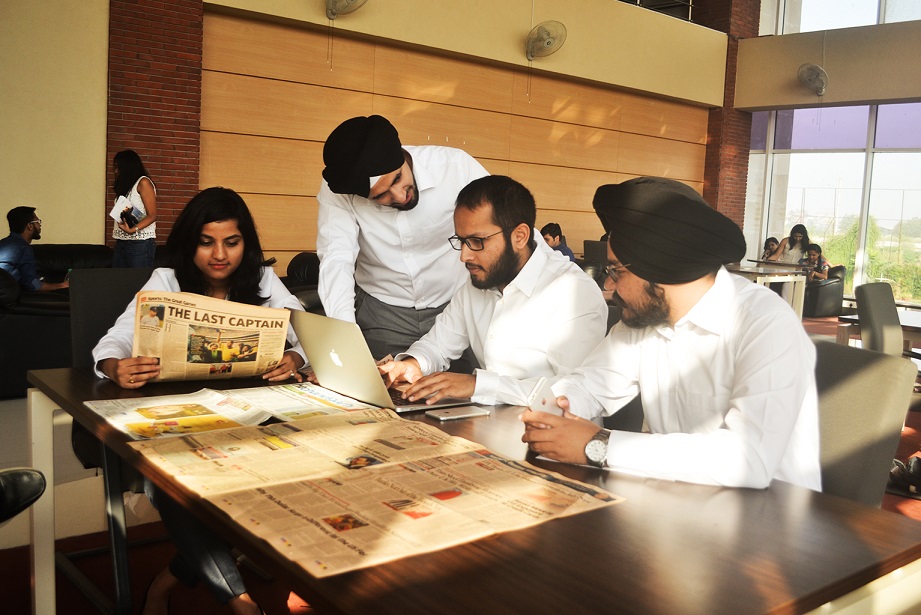
This is the right time to embark on a journey that you will cherish from a career point of view and very interesting times of an ever-changing business world.
Our programme will be one of the best in the country basis the faculty that teaches during the programme and the peers who join the cohort with you.
Our Executive MBA is a 18-month programme which will be conducted at the National Capital Region of Delhi and the tri-city of Chandigarh simultaneously.
Parts of the programme can also be conducted at our campuses in Patiala and Dera Bassi (near Chandigarh).
Faculty use various pedagogical tools like case discussion and analysis, flipped classrooms, video interventions, problem-solving, in-class tests, tutorials etc. for a more engaged teaching and learning process. The brighter students are encouraged to play an important role in teaching and learning process by taking over the class in any case discussion or flipped classroom setup. For most core course of three credits there are two lecture classes and one tutorial class every week. Students are divided into smaller groups for the tutorial class. The tutorial class allows the faculty to revise the concepts taught in the lecture class and do extra problems with the students to improve their understanding of the concepts. The weaker students get a chance to raise their doubts and queries in the small group tutorial classes.
Some of the innovative teaching practices introduced by faculty members are given below:
The Thapar Executive MBA program offers a choice of specializations. These specializations have been carefully put together incorporating feedback provided by both practitioners and academia. As a participant you can choose to take up any two of the following:
Markets and marketing have evolved with the advent of AI and hyper broadband connectivity. Students specializing in this area will gain a deeper understanding of the important concepts and theories beyond what is covered in a typical introduction to marketing management course. The focus of this specialization will be on understanding branding, advertising, and consumer behaviour in the context of recent advances in digital marketing, AI-based data-base marketing etc.
This specialization is designed for non- finance professionals who are getting ready for senior general management roles. In this specialization, attention will be given to both financing start-ups to financing large projects within ongoing enterprises. Participants will be exposed to the latest financial instruments and financing approaches. Participants will also be trained in entrepreneurial financing and venture funding.
“Uberization” of business models are providing extraordinary opportunities for creating new value. These new enabling platforms make the logistics of the interaction of various stakeholders seamless and enable businesses to save cost and achieve extra normal leverage. This specialization will give participants an in-depth understanding of the fundamentals of supply chain management and the supporting technologies to make it lean and smart.